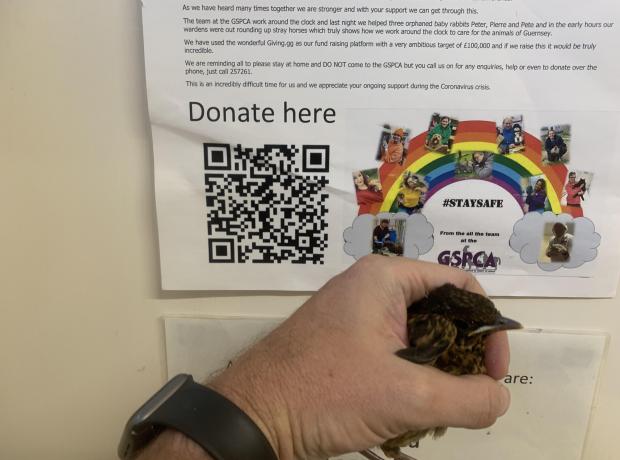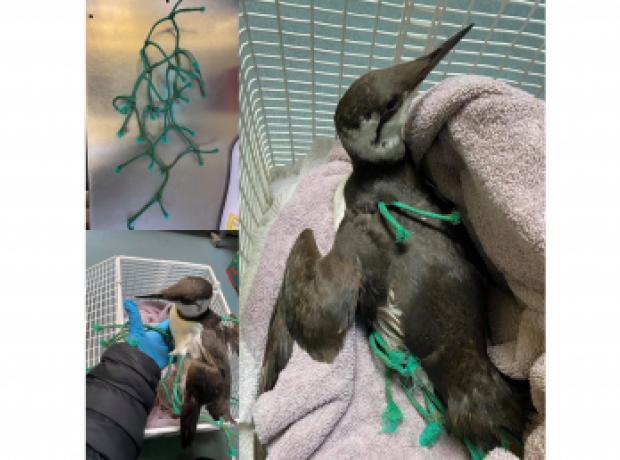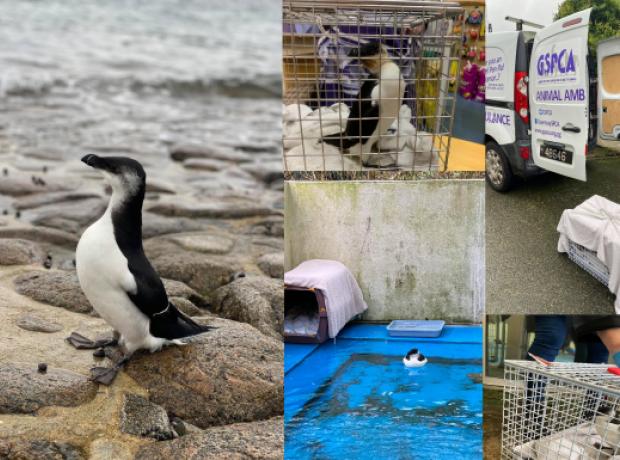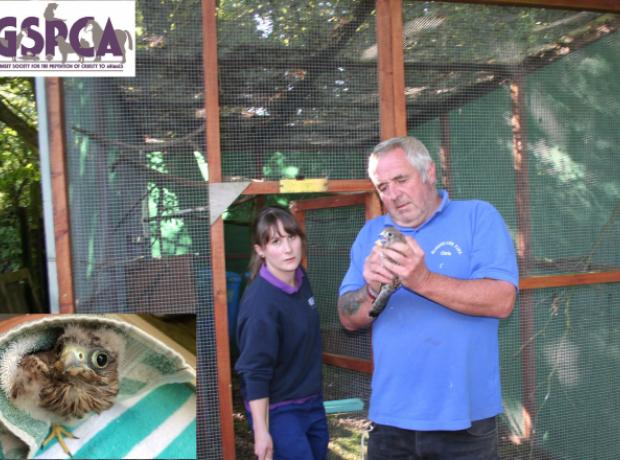Links to vets in Guernsey
Local useful links
Website donated by:

The GSPCA have been extremely busy in recent weeks with huge numbers of baby birds needing hand rearing that have been found or rescued.
Baby birds are always where possible best left in the wild to be rehabilitated by their parents.
Nicolle Morgan GSPCA Animal Care Assistant said “Very recently we have received a few birds nests full of baby birds varying from pinkies as in newly hatched to fledglings (almost fully feathered), mainly due to disruption from gardening activities.”

With Spring well underway the GSPCA are asking Islanders to please be mindful of the many fledglings popping up around the Bailiwick.
The GSPCA would like to remind that as a general rule, it is best to leave baby birds alone.
A baby bird has a greater chance of survival in the wild than it has being hand-reared by man as they learn to fend for themselves and how to forage for food by their parents.
Around 2 weeks after hatching young birds in your Bailiwick garden usually leave the nest, just before they learn how to fly.

Today the GSPCA was called out to a seabird tangled in netting.
GSPCA staff member Beckie Bailey when she arrived at Petit Bot rescued the guillemot in a life threating situation as it was that badly tangled it wouldn’t have survived if it hadn’t been for the kind person discovering the bird and calling us out.
Beckie quickly transported it back to the GSPCA Animal Shelter where we are carrying out our essential work helping hundreds of animals.
When back at the Shelter the bird was freed from the green netting and is recovering well at the GSPCA.

On the evening of the 9th October GSPCA Ambulance Warden was called out in the dark to rescue an oiled Razorbill found at L’Eree.
The stormy Winter weather often stirs up oil from the seabed causing wildlife harm and Olly McTolly as the bird was called when found was rushed to the GSPCA where GSPCA Manager Steve Byrne checked the poorly bird in and provided the initial first aid with the Ambulnace Warden.

Only days old on the 14th May Millie the kestrel was found in St Saviours only days only with her fluffy feathers and no parents in site.
With no nest to or parents in site and far to young to be out of the nest she was rushed to the GSPCA where she has spent a number of weeks in an intensive care unit being hand fed from early in the morning until late at night.
On the 23rd September 2017 ‘Mist’ an adolescent gannet was rescued from Lihou very unwell and weak and brought to the GSPCA Animal Shelter by Volunteer Warden Suzy Rose.
For the first few weeks the bird was under the supervision of our vet and care of the GSPCA team in our intensive care room for large sea birds and seal pups.
Mist responded extremely well to treatment and enjoyed a lot of fish each day.
As Mist grew stronger the bird was allowed outside on one of the GSPCA rehabilitation pools.
With Spring well underway the GSPCA are asking Islanders to please be mindful of the many fledglings popping up around the Bailiwick.
The GSPCA would like to remind that as a general rule, it is best to leave baby birds alone.
A baby bird has a greater chance of survival in the wild than it has being hand-reared by man as they learn to fend for themselves and how to forage for food by their parents.
Around 2 weeks after hatching young birds in your Bailiwick garden usually leave the nest, just before they learn how to fly.
Earlier in the week we told you about two kestrels that were rescued recently and in the care of the team at the GSPCA.
We are pleased to report that the younger of the two called 'Bradshaw' is back in the wild where he belongs.
Rescued by GSPCA Volunteer Wardens Matt Hill-Smith and Jen Bradshaw found stunned in the road earlier this month Matt popped in yesterday to take him back to the area where he was found.
Thank fully Bradshaw wasn't injured badly and after a short period or rest and care he was fit enough to go back where he belonged.

On the 26th June a very young, starving kestrel was found on a road in St Peters.
With no mother in site and traffic back and forth the bird was rescued and brought to the GSPCA in St Andrews.
He was placed in an intensive care unit and still had much of his down and not fully feathered due to his age.
Day and night he was hand fed by the team at the Shelter until he was fit enough to place in one of our rehabilitation aviaries.
Over the last few weeks he has built his strength and learnt to fly and forage for food.


